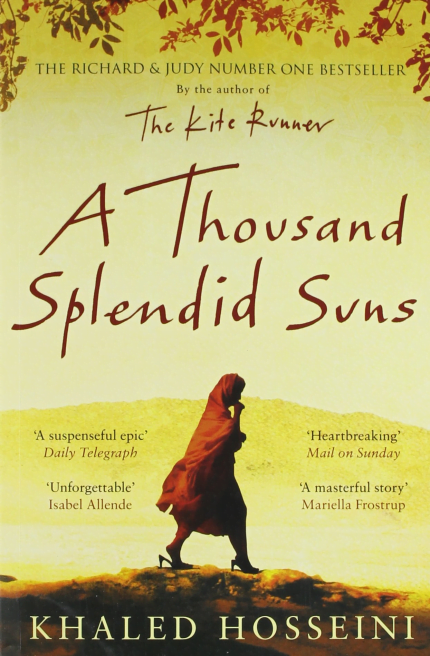A Thousand Splendid Suns, by Khaled Hosseini

A Thousand Splendid Suns by Khaled Hosseini
My rating: 5 of 5 stars
This was an amazing and deeply touching read. I was born in 1975 and, being the son of rather politically interested parents, I remember the Soviet-Afghan War and the Mujahideen and their respective roles in Afghanistan since about 1985.
I intellectually knew about the atrocities committed during that war, during the in-fighting among the Afghan warlords and, later, by the Taliban.
This book, though, tells the very personal story of Mariam, the illegitimate daughter of Jalil Khan, a prosperous business man from Heart, and Nana, one of his servants. While the early parts focus entirely on Mariam who desperately wants to be accepted by her father, we later get to know Laila and her parents (and a few other very memorable characters) as well.
Mariam’s and Laila’s ways cross when they both get married to Rasheed, the owner of a small shoe shop in Kabul.
When I started reading “A Thousand Splendid Suns”, I thought it was a bit slow but when I noticed I had finished about 75% of the book in one marathon reading session without even noticing the time passing, I understood how wrong I was. I had practically been glued to my Kindle even though reading what both women suffer through was, at times, hard.
I simply couldn’t help myself, though, because this book tells of suffering but is definitely not about it. It’s in fact a very personal history of its heroines, their loving, their losses, their children, and families. Neither Mariam nor Laila ever give up; they do what they have to do (and sometimes that’s horrible) and still manage to retain their humanity.
Since I always at least roughly knew what year I got told about, I could compare at which stage of my life I was at the time. It was shocking to read how people literally got shredded to pieces by rockets in Afghanistan while I was getting married and our first child was born. I did not only intellectually know what had happened but I felt like I actually got a glimpse of the personal tragedies.
“A Thousand Splendid Suns” pretty much lets those splendid suns shine on those two women as fictional examples of what actually happened to thousands of Mariams and Lailas in Afghanistan.
View all my reviews